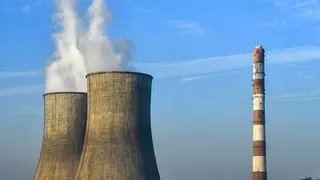A drop in poppy seeds production in the country and other origins this year is likely to squeeze supply, pushing up prices in the domestic and international markets, trade sources said.
Production in the country has dropped to below one-third of the requirement, giving rise to imports which are costly following decline in output in other origins due to unfavourable weather, the sources told Business Line .
Annual Indian requirement of poppy seeds ranges from 34,000 tonnes to 38,000 tonnes against the indigenous production of around 15,000 tonnes. Its cultivation is strictly controlled by the Narcotics Control Board under license issued by it. In 2011, licenses were issued for its cultivation in 25,350 hectares. But of this, 17,240 hectares were used for its growing, official sources said. Total output was estimated at 13,800 tonnes at an average yield of 800 kg a hectare, they said.
Actual marketable quantity of white poppy seeds available from the total production, after removing damaged and discoloured and so on, was at around 11,990 tonnes, they said. Whereas, it was at 15,135 tonnes in 2010, they said.
The daily requirement is estimated at 95-100 tonnes (1,900-2,000 bags of 50 kg each) and as such the annual demand is estimated at34,000-37,000 tonnes, they said. Against this, the availability is around 13,503 tonnes when the carryforward stock of 2010 of 1,513 tonnes is added to the domestic production of 11,990 tonnes, they said. According to them, 13,840 tonnes of white poppy seeds were imported from Turkey as on February 28, and thus, the total quantity available for 2011, at present, is 27,443 tonnes leaving a shortage of about 6,319 tonnes, they said. “Thus, there is a shortage of 20 per cent in availability and demand for white poppy seeds,” they said.
Import of white poppy seeds and yellow poppy seeds are allowed from Turkey and China. Permission is granted by the NCB after thorough verification that the poppy seeds grown in these countries are 100 per cent legal and each import is also certified by the government authorities, they said.
Fixed tariff value
The Centre in order to arrest fraudulent trade practices and monopoly business fixed tariff value for poppy seeds every 15 days and based on the international prices the Customs authorities fix uniform value adding the import duty of 21 per cent, they said. Now, imports of white and yellow poppy seeds are taking place, but the duty tariff fixed by the Central Board of Excise Customs (CBEC) every 15 days is for turkey white poppy seeds only and the present tariff is at $2917 a tonne. But, the price for yellow poppy seeds is at $1,400 a tonne, they said.
The trade alleged that they were being made to pay duty at the tariff fixed for white poppy seeds for the cheap yellow poppy seeds also. “So we are paying higher tariff duty, we have been requesting the CBEC to fix separate tariff for white and yellow poppy seeds,” they said. “This will help traders to get imports and pass on the benefit to consumers,” they added.
In India, poppy seeds are grown in Uttar Pradesh, M.P., Rajasthan, and its cultivation is controlled by the NCB, Gwalior, which grants yearly patta (title deeds) to the growers. They must surrender the yield to the Narcotic department, official sources said. This year the crop has substantially dropped due to rains and severe frost, they said. “The colour of the Indian poppy seeds is not as good as that of Turkey and China,” trade sources claimed. Prices vacillated between Rs 180 and Rs 300 a kg, while average good cargo is sold at Rs 220-230 a kg, they said.
Its demand increases in the summer months from April and then the prices would also shoot up and this year it is expected to cross Rs 250 a kg, they said. Turkey is the major supplier with an annual output of around 22,000 tonnes to 28,000 tonnes and this year it is estimated to be somewhere between 18,000 tonnes and 22,000 tonnes, according to reports. Similarly, the crop in China, which produces around 3,000-4,000 tonnes, is also reported to have a small crop squeezing the supply, traders said.








Comments
Comments have to be in English, and in full sentences. They cannot be abusive or personal. Please abide by our community guidelines for posting your comments.
We have migrated to a new commenting platform. If you are already a registered user of TheHindu Businessline and logged in, you may continue to engage with our articles. If you do not have an account please register and login to post comments. Users can access their older comments by logging into their accounts on Vuukle.